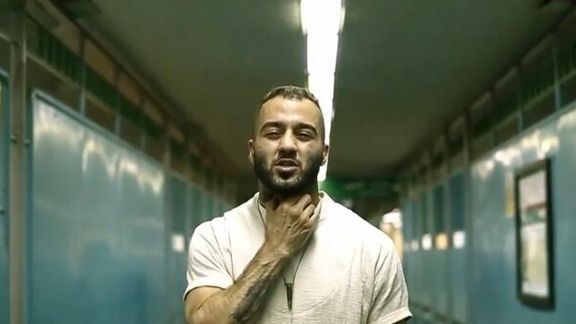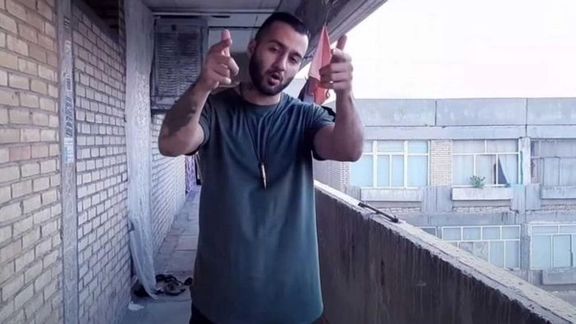Imprisoned Iranian Rapper Receives Award For Freedom Of Expression

Toomaj Salehi, a jailed Iranian rapper, has been awarded the 2023 Arts Freedom of Expression Award by Index on Censorship, an organization promoting free expression.

Toomaj Salehi, a jailed Iranian rapper, has been awarded the 2023 Arts Freedom of Expression Award by Index on Censorship, an organization promoting free expression.
The 33-year-old metalworker from Esfahan, known by his stage name Toomaj, is currently serving a six-year and three-month sentence in Dastgerd Prison in Esfahan Province on charges of "corruption on earth" and "waging war against God." The award will be accepted on his behalf by his London-based cousin, Azadeh Babadi, who operates an account representing Toomaj.
The award is great support for all the people for whom Toomaj has fought, Babadi said in a video message posted on X by Index on Censorship. “Toomaj is still detained so it is our turn now to take the responsibility and do everything in our power to be his voice and push the regime to set him free,” she added.
Index on Censorship presents annual awards to individuals worldwide who have made significant contributions to free expression in the preceding year. Past sponsors of the award include The Guardian, Google, SAGE Publications, and the London law firm Doughty Street Chambers.
Toomaj was violently arrested by the intelligence ministry in Esfahan province during the height of the Woman, Life, Freedom protests on October 30, 2022, for his artistic activities in favor of the anti-government movement. He was reportedly subjected to severe torture while in custody and forced to make televised “confessions” that incriminated him.

Toomaj used his social media influence to encourage protesters not to give up the streets and join strikes to topple the regime, although he had already been arrested once before. He also provided guidance on bypassing internet censorship. Throughout his career, he was never allowed to release his music in Iran or hold live concerts, connecting with his fans solely through online platforms like YouTube.
In one defiant tweet following his arrest, Official Toomaj quoted one of his songs: "We will come to the streets, every day and night, until Iran is freed. The streets are ours; we will take them back from you."
This was the second time Toomaj, a highly popular underground rapper, was arrested for his politically charged songs, such as “Buy a Rat Hole” (2021) in which he vehemently criticized repression, injustice, poverty, and authorities’ corruption and impunity from prosecution. The song harshly condemned the regime and called out its agents and supporters, warning them that retribution for their actions was imminent. "You are a murderer if you cover up murder. To cover up murder you must step in blood,” he sang.
Like many other Iranian musicians, Toomaj was never able to release his songs or perform them publicly due to an unofficial. Iranian musicians, regardless of their genre, must obtain permits to release their music or hold concerts. The permit issuance often depends on the content of the lyrics and the artist's overall activities rather than the genre itself. Rap and rock music are generally frowned upon as Western influences and are not considered suitable for the Iranian public. Furthermore, recording and releasing music categorized as "degenerate Western culture" and "vulgar" on the internet is deemed illegal by the authorities.
The Iranian regime has also targeted other artists and singers whose work has been critical of the regime and explicitly addressed either political or social themes, including rappers Saman Yasin, who was charged with mohrabeh, or “enmity against God,” in November last year and Mehdi Yarrahi, who was arrested on August 28 for a song named Your Veil in support of the opposition to the mandatory veiling rules.
For the past four decades, religious authorities in Iran have prohibited musical instruments from being showcased on state television, though they reluctantly allowed music broadcasts. Female singers are completely banned from publishing their work, and concerts are permitted only for all-female audiences or when female artists perform in choirs.